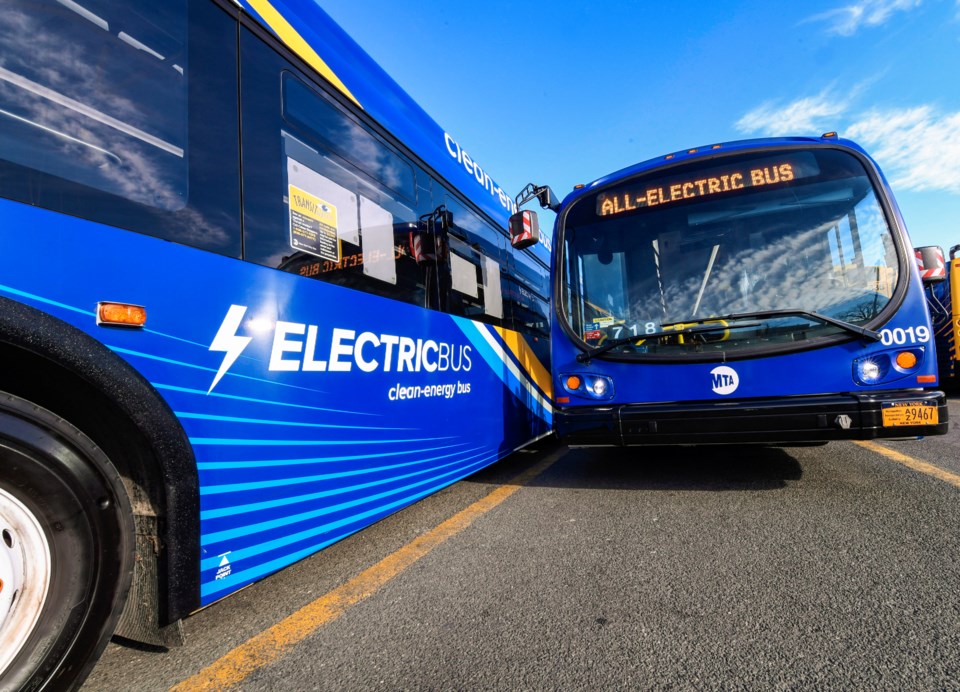Transportation advocates believe that Brooklyn residents will continue to wait for subway signal fixes, elevator access at stations and bus electrification projects, despite assurances from the Metropolitan Transportation Authority that funding will be available for these essential improvements in the future.
The MTA this week said it is forming a five-year plan under the assumption that Governor Kathy Hochul will find the $15 billion that congestion pricing would have brought in from toll revenue and bonds, officials said during the monthly board meeting.
“From a financial planning perspective, the impact of the congestion pricing pause has not yet been incorporated into the budget beyond 2024 under the assumption that the pause will be lifted or the replacement revenue will be provided,” said Kevin Willens, the MTA’s chief financial officer, during the board meeting.
That said, the MTA said they are still anticipating a deficit of over $400 million per year starting in 2027.
Agency officials said they believe they will be able to execute major projects that riders have longed for, because the governor could change her mind and approve congestion pricing at a later date or find other revenue sources.
Transit advocates disagreed with the MTA’s rosy outlook.
“There are years of planning before a shovel is in the ground, so there’s a lot that’s happened already that’s essentially wasted or on hold,” said Danny Pearlstein, policy and communications director at Riders Alliance, a public transportation advocacy non-profit fighting to reinstate congestion pricing.
“Without congestion pricing, you won’t see [new capital projects] because the MTA will be focused on its very basic state of repairs.”
In Brooklyn, the top priority for riders is the re-signaling of the A/C subway line at Fulton Street, according to advocates.
The $1.3 billion project, which was set to be funded by congestion pricing, would have installed upgraded signals that allow the MTA to run trains quicker and more frequently on lines that face some of the most delays.
In addition, Brooklyn only has 35 ADA accessible subway stations. (Americans With Disabilities Act). Several elevator installations already remain on hold, including one at Nostrand Avenue.
At a recent press conference, MTA chief executive officer Janno Lieber acknowledged that accessibility projects would not proceed without the added funding.
In addition, Brooklyn residents who were looking forward to zero- to low-emission electric buses will also have to wait.
To replace old diesel buses with new electric vehicles, bus depots must be outfitted with chargers. One installation began at the East New York bus depot in May, which services 14 lines. However, all bus electrification projects, including the one in East New York, have been put on hold.
The most flashy project in Kings County is the creation of the Interborough Express (IBX), a light rail line between Bay Ridge and Jackson Heights, Queens that would run on existing tracks. The $5.5 billion project’s construction will begin as soon as the environmental review is completed, should the MTA find funding, Jamie Torres-Springer, the president of MTA Construction and Development said at the board meeting.
“When we’re talking about the signal upgrades, the electrification of the East New York bus depot, replacing trains, creating the IBX, it’s really these capital projects that would update the system,” said Kathy Park Price, Brooklyn organizer at Transportation Alternatives, a public transportation advocacy non-profit. “Anything but the congestion pricing plan will not meet the goals or reap all of the benefits.”
Congestion pricing, which would have charged drivers a toll for entering dense parts of Manhattan during peak hours to generate revenue for the MTA, was also designed to decrease traffic and reduce pollution, as necessitated by the 2019 Climate Leadership and Congestion Act.
A coalition of unions, organizations and elected officials have attempted to reinstate congestion pricing through lawsuits.
The first case was filed by TWU Local 100, the union that represents MTA workers. The suit argues that bus service cuts due to the cancellation of congestion pricing were not implemented properly, leading a judge to order their reversal.
And there were two lawsuits announced last Thursday. One argues that the program’s cancellation is illegal because it was mandated by the legislation the governor’s predecessor signed. The other argues that its repeal will prevent New York from achieving its emission reduction requirements. If either case is successful, the governor will be forced to implement the program.
“Even if she found the money, it doesn’t fix the problem of congestion,” said Public Advocate Jumaane Williams, referring to Governor Hochul. “It’s really stunning. I haven’t seen this kind of lack of leadership on a particular issue in a really long time.”
The MTA board will vote on the final version of their five-year plan in September before submitting their proposal to Albany in October.




